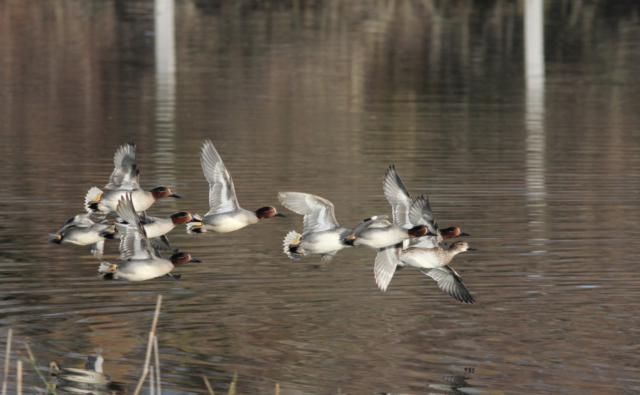Hichem Azafzaf is the President of the Association Les Amis des Oiseaux (AAO)/Birdlife in Tunisia. He answers the Tour du Valat’s questions about the collaborations between the AAO, the Tour du Valat and other partners in North Africa regarding the Eurasian Spoonbill monitoring program, and the 9th International Spoonbill Workshop that wil be held in Djerba, Tunisia, from 14 to 18 November 2018 (more information).
 The Eurasian Spoonbill is a species that has recently returned to the Camargue where it has nested regularly since the early 2000s, and from where it often leaves to winter in North Africa. What is the status of this species in Tunisia, and what are the threats facing it today?
The Eurasian Spoonbill is a species that has recently returned to the Camargue where it has nested regularly since the early 2000s, and from where it often leaves to winter in North Africa. What is the status of this species in Tunisia, and what are the threats facing it today?
Eurasian Spoonbills can be seen almost everywhere in Tunisian wetlands, according to the water level and salinity, as well as the availability of food. About 4000 of these birds winter in the country. Numerous juveniles born in Europe come to Tunisia, and more specifically to the Gulf of Gabès, and remain there for the first two or three years of their lives. Although this species is protected by Tunisian law, illegal hunting is the number one factor of spoonbill mortality in Tunisia.
What kind of work does the AAO and its North African partners carry out on spoonbills, and what kind of collaboration exists with the Tour du Valat and other European-based organizations?
Several activities are conducted by our North African partners to ensure the conservation and development of the European Spoonbill population:
- Monitoring of the movements of these birds by reading their plastic marking rings,
- Advocating to forbid hunting in the key sites used by the species, for the sustainable management of these sites and the creation of protected areas,
- Surveillance and reporting any infractions committed against this species and its key sites.
Considered to be a migratory species that winters in North Africa, the Eurasian Spoonbill now nests in Morocco as well, where in 2018 juveniles were ringed for the first time in their nest. The AAO also assesses the importance of Tunisian wetlands for the Eurasian Spoonbill, by focussing on wintering individuals and summering juveniles, and a study programme should be developed for North Africa in partnership with the Tour du Valat.
In November, the AEWA’s 9th International Spoonbill Workshop will be held in Djerba, Tunisia. What are the major issues to be addressed concerning the conservation of this emblematic species?
This 9th International Spoonbill Workshop, under the auspices of the AEWA, is in my knowledge the first workshop of the Eurasian Spoonbill International Expert Group to take place in a wintering area. Discussions on the latest discoveries concerning the flyways and the behaviour of these birds will be key issues at this meeting of experts, which will also provide the occasion to propose better conservation of the sites that are important for the survival of this species.



